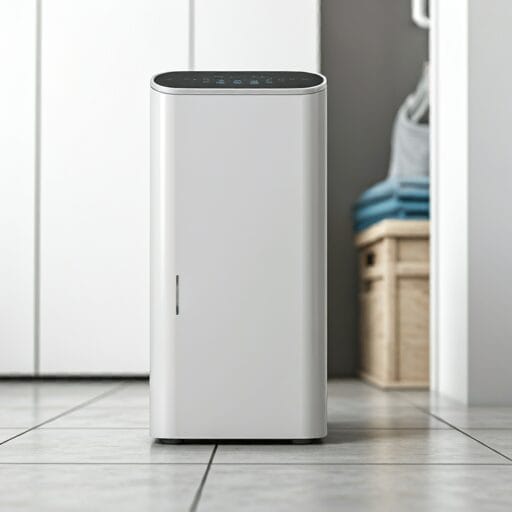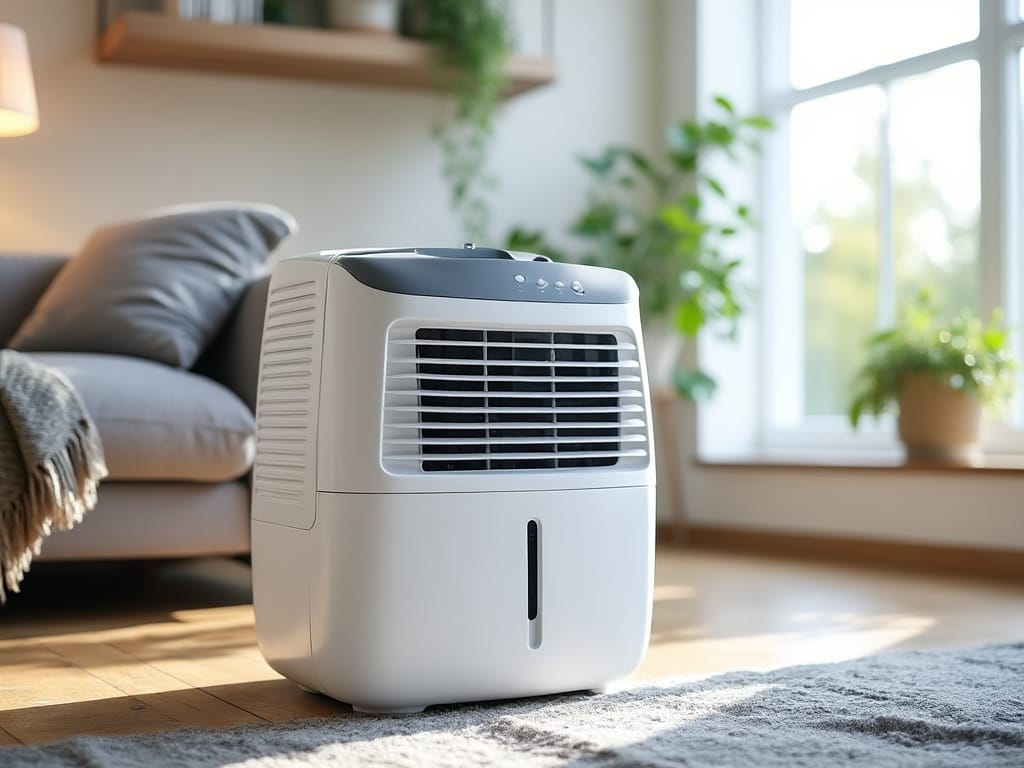The Benefits of Using a Dehumidifier in Winter. As winter approaches, many of us prepare our homes for the colder months by sealing up windows, bolstering insulation, and spending more time indoors.
But while these measures help keep the cold at bay, they can also trap moisture, creating a range of issues that impact comfort, health, and even the structural integrity of your home.
This is where a dehumidifier can make a significant difference. Although often associated with warmer seasons, dehumidifiers are equally, if not more, valuable in winter.
Here’s why investing in a dehumidifier during the colder months can lead to a healthier, more comfortable home environment.
Prevents Mould and Mildew Growth.
One of the primary benefits of using a dehumidifier in winter is mould prevention. Mould and mildew thrive in environments where there is excessive moisture, particularly in dark, damp areas like bathrooms, basements, and corners of rooms.
During winter, we tend to close up our homes to retain warmth, which can trap moisture inside.
This, combined with the humidity produced by indoor activities such as cooking, showering, and even breathing, creates a breeding ground for mould.
Mould doesn’t just look unsightly; it can pose serious health risks, especially for those with asthma, allergies, or weakened immune systems.
By using a dehumidifier, you can reduce the moisture levels in your home, making it less conducive to mould and mildew growth.
This simple step can save you the hassle of extensive cleaning or costly repairs later on.
Improves Indoor Air Quality.
During winter, we tend to rely on indoor heating to stay warm, which can reduce indoor air quality if the air becomes stale and laden with pollutants.
Trapped moisture and airborne particles can make breathing feel uncomfortable and may even aggravate respiratory issues.
A dehumidifier helps to improve indoor air quality by removing excess moisture from the air, reducing the likelihood of dust mites, mould spores, and other allergens proliferating in your home.
Lower humidity levels also make it harder for allergens and bacteria to survive, thereby reducing the concentration of airborne irritants.

This makes a dehumidifier particularly beneficial for those who suffer from allergies or respiratory conditions, helping them breathe more easily and enjoy a healthier indoor environment.
Reduces Condensation on Windows.
One common problem many homeowners face in winter is condensation on windows.
Condensation occurs when warm indoor air comes into contact with the cold surface of windows, leading to water droplets forming on the glass.
While this may seem like a minor annoyance, condensation can actually lead to bigger issues, such as water damage to window frames and sills, the development of black mould, and increased dampness within your home.
Using a dehumidifier can help reduce the amount of moisture in the air, thereby minimising the formation of condensation on windows.
By controlling indoor humidity levels, you can prevent this buildup of water on glass surfaces, protecting your windows and frames from potential damage.
Protects Your Home’s Structure and Furnishings.
Excess moisture can have a long-term impact on the structure and furnishings of your home.
Prolonged exposure to high humidity can cause wood to warp, paint to peel, and wallpaper to bubble.
Metal fixtures may start to rust, and soft furnishings like curtains, carpets, and upholstery may develop a damp or musty odour.
A dehumidifier helps by maintaining optimal humidity levels, which can protect these materials from the negative effects of moisture.
Wood, fabric, and paint all tend to fare better in environments with controlled humidity, meaning a dehumidifier can help preserve the appearance and quality of your home’s furnishings and finishes.
This is particularly valuable if you live in an older home, where even slight changes in humidity can affect the structural integrity of wooden beams and floors.
Enhances Comfort Levels Indoors.
While winter is all about creating a cosy indoor environment, excessive humidity can make rooms feel colder and more uncomfortable.
Humid air tends to feel colder than dry air, which means that high humidity levels may force you to turn up the thermostat, leading to increased energy usage and higher bills.
A dehumidifier can help by removing the dampness from the air, making rooms feel warmer and more comfortable.
This also allows your heating system to work more efficiently, as it won’t need to work as hard to maintain a comfortable temperature.
By using a dehumidifier, you can enjoy a cosy atmosphere while potentially saving on heating costs.
Helps Prevent Health Issues Related to Humidity.
In addition to aggravating allergies and respiratory conditions, high humidity can also contribute to other health issues.
For instance, damp environments are prime breeding grounds for dust mites, which can exacerbate asthma symptoms.
Humid air can also trigger skin conditions such as eczema by making the skin feel sticky and irritated.
A dehumidifier helps to maintain a healthy indoor environment by keeping humidity levels in check, reducing the risk of dust mite infestations, and creating a more comfortable atmosphere for those with skin sensitivities.
For households with children, elderly members, or individuals with chronic health conditions, this can be particularly beneficial in promoting overall well-being.
Energy Efficiency and Cost Savings.
While dehumidifiers do consume electricity, they can actually save you money on energy bills in the long run.
When humidity levels are high, indoor air can feel cooler, encouraging homeowners to raise the thermostat.
However, by using a dehumidifier to reduce indoor humidity, you can make the air feel warmer without adjusting the thermostat, allowing you to save on heating costs.
Additionally, some modern dehumidifiers come with energy-saving features, allowing them to run efficiently and turn off automatically once the desired humidity level is reached.
With these advanced settings, a dehumidifier can be a cost-effective tool for maintaining a comfortable and energy-efficient home environment.
Works in Tandem with Ventilation and Heating.
While ventilation is essential for controlling moisture, winter weather can make opening windows less practical.
A dehumidifier offers a controlled way to manage indoor humidity without losing heat, making it a great companion to your ventilation and heating systems.
It can help to balance indoor air quality, even if windows are closed, so you can stay warm while keeping moisture levels low.
How to Get the Most Out of Your Dehumidifier in Winter.
To make the most of your dehumidifier, consider placing it in rooms most prone to moisture buildup, such as bathrooms, basements, or rooms with limited ventilation.
Adjust the settings based on the room size and current humidity levels, and monitor the collected water tray regularly.
Remember that the ideal indoor humidity level in winter is between 30% and 50%.
Anything higher may encourage mould growth, while lower levels can lead to dry air, which can be equally uncomfortable.
Conclusion.
Using a dehumidifier in winter may not be the first thing that comes to mind when preparing your home for the season, but it’s a highly effective tool for managing indoor moisture levels.
By reducing excess humidity, a dehumidifier can help prevent mould, improve air quality, protect your home’s furnishings, and even enhance comfort, making it a worthwhile investment for the colder months.
With the right dehumidifier, you can enjoy a healthier, cosier, and more energy-efficient home all winter long.
Hope you’ve found our article, The Benefits of Using a Dehumidifier in Winter useful.
Thank you for taking the time to read my post. If you’d like to add a comment or thought on this post, please use the comments section below. I can also be contacted via the online contact form. Keep up to date with the latest news on social media.

